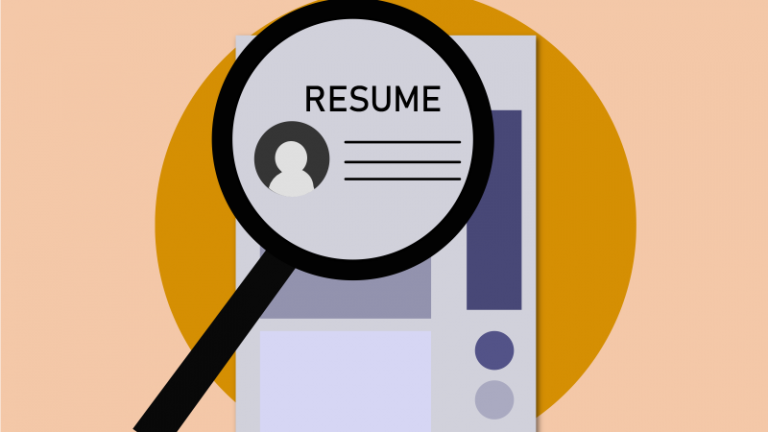How to include relevant coursework in resume
Your resume must effectively convey all of your potential value to an employer in the hiring environment of today. If you are a student or recently graduated, your curriculum is certainly rich but your real-world work experience may still be lacking.
Before listing your homework, you should take a few things into account. Consider your career stage, the position for which you are applying, and the degree to which your education relates to the requirements of the post.
Professional backgrounds
You might not have enough professional experience to demonstrate if you are a student or recent graduate. Thus citing your pertinent courses as evidence of your competence is a fantastic idea. This part won’t be much use to you if you already have a year or more of work experience. Then, you should concentrate on your professional background and accomplishments. There are jobs that you can apply for even if you are still in school or have just graduated as a waiter or a cashier, for instance. If you’re applying for these positions, you should place more emphasis on your technical expertise and prior experience.
It might be ideal to list relevant coursework on your resume if you’re going for a position that stresses the value of academic experience, such as an internship or another career that focuses on education. Examine the job description to determine whether they are required or not. This may make it easier for you to decide what to write. These are markers that you should include if they ask for a certain degree, qualification, portfolio, or GPA.
Three things determine how much coursework you include on your resume and where you put it:
How many courses you’ve taken that are relevant, the information you should provide, the available space on their resumes, most people list relevant coursework in the education area.
Relevant Coursework
Simply put “Relevant Coursework” after the degree’s name to accomplish this, and then use commas to separate the course names. If there is enough room, you may also create a list of bullet points. The Recruiter may read it more easily in this way.
This is everything you should know about including pertinent education on a resume:
- It is not strictly necessary to highlight relevant coursework in a resume, yet doing so could be beneficial if you are a student or recent graduate.
- If you have the experience, remove any pertinent education from your resume and place more of an emphasis on your talents and practical experience.
- Utilise the education section to highlight the pertinent coursework; you can use commas to separate them or bullet points to list them.
- If the job you’re applying for requires a solid academic background, include a section specifically for your relevant coursework; otherwise, skip it and concentrate instead on volunteer and extracurricular activities, hobbies, and interests that are appropriate for the position.
Coursework Section
An optional area on an entry-level resume called “Relevant coursework” lists coursework you’ve taken that’s pertinent to the position you’re looking for. Projects, academic accomplishments, extracurricular activities, and volunteer opportunities might also be included in this area. Even if you don’t yet have any professional experience, if you are a student or recently graduated, relevant courses are an excellent method to demonstrate your competence.
The decision you’ll need to make as you attempt to add a relevant coursework section on your resume is where to place it. It could be advisable to place it below the education section of your resume if you believe it will only serve as a complement to the remainder of your resume for an employer.
Consider putting the applicable coursework section where a professional experience section would typically go on your resume, at the top or “main” section, if it would serve as the main focus of your experience. Choose the detailed format if you’ve determined that the latter is appropriate.
A great strategy to demonstrate the value you’ll offer to the employer’s team is to include a section on your student resume listing all of your relevant coursework. While determining what details to add in the coursework section and where to place them on your resume, keep the job description top of mind.
The term “relevant coursework” refers to classes you took in high school or college that have some connection to the job for which you are seeking. In a resume, this kind of coursework might be listed in the education section.
Verdict
In your resume, you can list any relevant coursework. This is particularly true if your coursework demonstrates that you are knowledgeable about a certain topic or ability. A resume that highlights relevant coursework and research projects you have accomplished is usually advantageous for those applying for entry-level positions. Your involvement in student organisations or volunteer work might also be listed on your resume.
It’s important to take any coursework from college off of your resume once you obtain your first job after graduating. If you have some work experience, it wouldn’t make sense to keep stressing these academic experiences.
According to this, some jobs might not find college coursework helpful. For instance, your molecular biology courses won’t be useful if you land a job as a server or cashier. In general, consider the positions you’re applying for and whether it makes sense to add courses to your resume.
Do you have more questions on how to write a perfect resume that lands more interviews? Not sure how to describe your skills, employment history or achievements? ResumeSolution Team is a diverse and brilliant group of authors, researchers, and subject matter experts who provide helpful advice for navigating your career journey. Use our resume writing services today!







